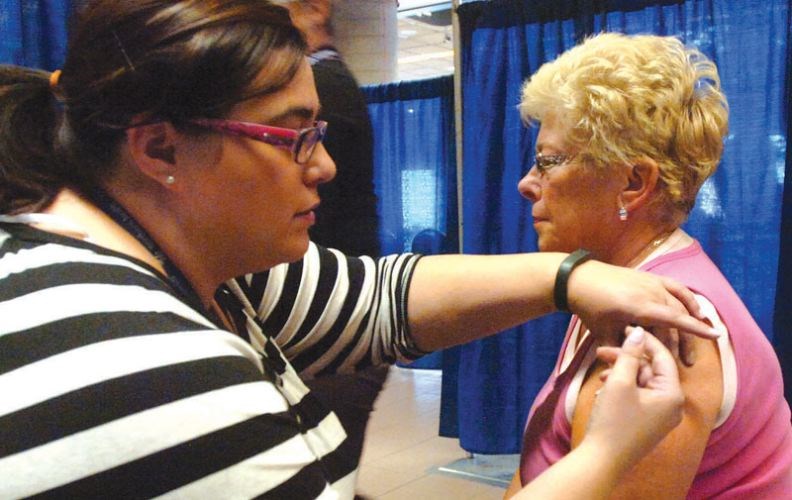Despite fears of the flu escalating in the province and across the country, northern B.C. has hardly been hit.
H3N2 is this year’s most common strain, said Northern Health Medical Health Officer Dr. William Osei, while last year’s was H1N1.
“Fortunately for us, we haven't had the type of widespread transmission that the Lower Mainland and other provinces have seen,” said Osei during a seasonal influenza update.
“Last year this time there were lines of residents waiting for the flu shot,” he said. “Compared with last year, we’ve had a very mild season so far in the north.”
Northern Health has tracked 21 reported cases in the northern, half of the 47 cases seen at this time last year. The northwest has two cases, northeast has 10 and the northern interior, which includes Prince George, has nine.
The flu season usually peaks in early January, and then again four weeks later, Osei said.
“Immunizations continue to be our best strategy for controlling this virus,” said Osei, adding people should wash their hands, cough into sleeves or tissue and stay home from work when sick to help prevent it from spreading.
This year’s vaccination isn’t as effective for H3N2 because one of the three components that make up the formula doesn’t quite target what it should - what Osei called a “mismatch.”
That shouldn’t be a problem if people get vaccinated and take precautions, he said, noting that the current strain is far less virulent than H1N1, though the symptoms are the same.
“It is true that we didn’t hit all of the three that we intended to hit but it hasn’t caused a problem yet in the north,” he said. “We didn’t hit the bullseye, but it hit around it and it still has some level of protection.”
So far, Northern Health has vaccinated 16,453 people as of early January. Last year, it gave 23,912 doses of influenza vaccine out of a regional total of 62,266 by it and other providers.
Northern Health said it has more than enough doses to supply the region; it received about 83,700 doses out of a total of 1.55 million for the province.
There has been a spike in provincial cases in the last weeks: according to the latest numbers for B.C. Centre for Disease Control, 45 per cent of patients tested for flu were positive during Dec. 28 to Jan. 3. That’s up from 31 per cent with positive results from Dec. 14 to 20.


